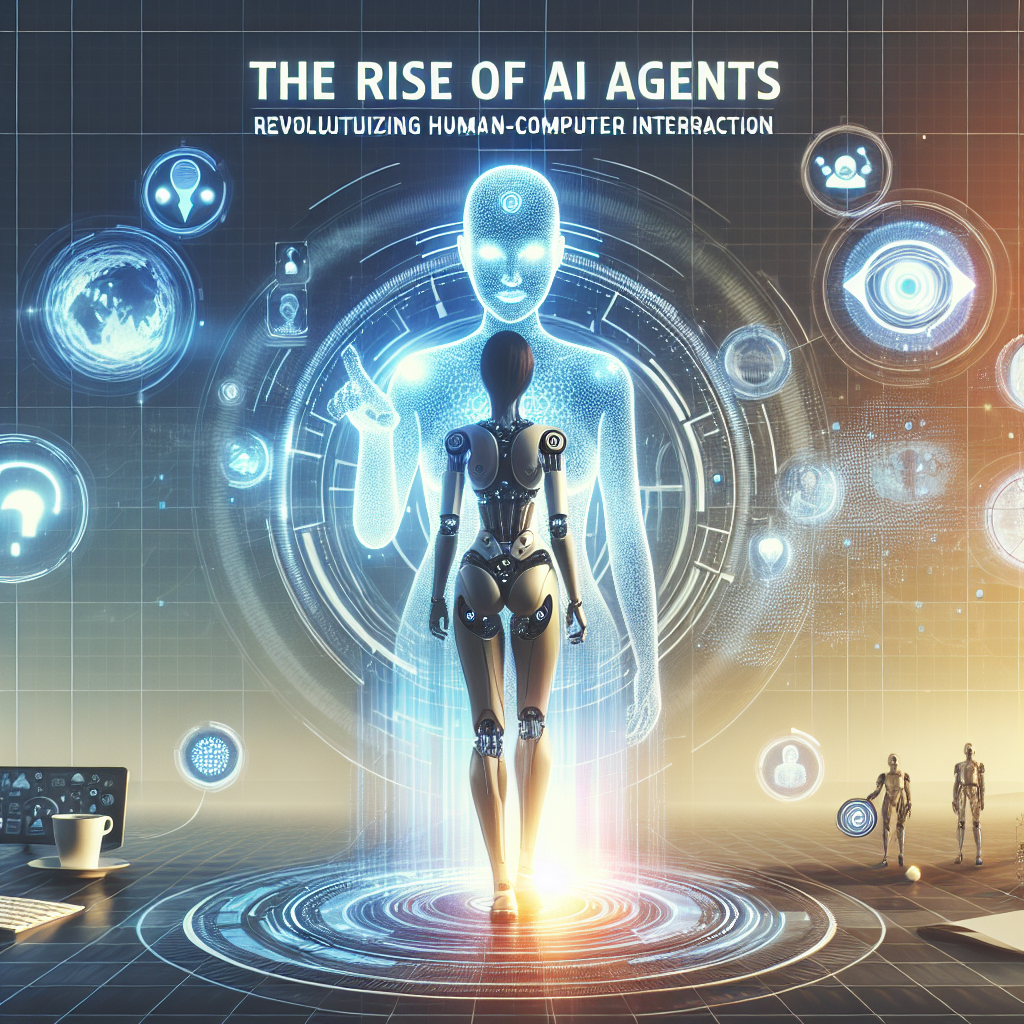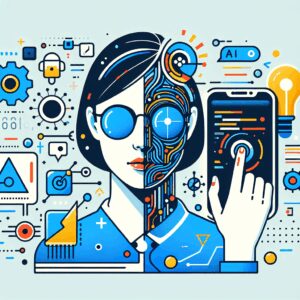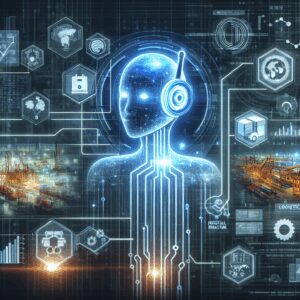The Rise of AI Agents: Revolutionizing Human-Computer Interaction
In the ever-evolving landscape of artificial intelligence, a groundbreaking shift is taking place that promises to redefine how we interact with technology. AI agents, once confined to narrow tasks, are now emerging as versatile digital assistants capable of automating a vast array of computer-based activities. This technological leap forward is not just changing how we work; it’s fundamentally altering the very nature of human-computer interaction.
As we delve into this transformative trend, we’ll explore the implications of AI agents on productivity, industry adoption, and the future of work. From the latest market statistics to expert insights, this comprehensive analysis will equip you with the knowledge to navigate and leverage this AI revolution.
The Dawn of a New Era in AI
The launch of advanced AI platforms like Manis AI has ushered in a new era of automation. These sophisticated systems are not just tools; they’re becoming integral partners in our daily digital lives. As AI agents become more interconnected and capable, they’re challenging our traditional notions of computer use and human input.
“When Manis AI launched, one thing we began to realize was that these interconnected AI agents can now honestly automate almost all the tasks we perform on our computers. Human computer interaction felt like it was disappearing, and in some cases that’s absolutely true.”
AI LABS
This observation from AI LABS encapsulates the profound shift occurring in our digital ecosystem. The boundaries between human-driven tasks and AI-automated processes are blurring, leading to a reimagining of workflow efficiency and task management.
The Expanding Scope of AI Capabilities
The capabilities of AI agents have expanded far beyond simple voice commands or basic data retrieval. Today, these digital assistants are tackling complex tasks that once required *significant* human expertise and time investment.
“People are asking AI agents to perform real tasks like building tax policy visualization tools or writing code. You can also ask them to do your taxes if the right data is given to them.”
AI LABS
This advancement in AI functionality is not just impressive; it’s transformative. Tasks that once required specialized skills or extensive training can now be delegated to AI agents, freeing up human resources for more creative and strategic endeavors.
The Impact on Business and Industry
The integration of AI agents into business processes is driving *significant* improvements in efficiency and productivity. According to Business Analytics Quarterly, 73% of businesses implementing AI strategies see improved performance within 6 months. This statistic underscores the tangible benefits that AI agents bring to the corporate world.
Furthermore, the adoption of AI agent technologies is accelerating at an unprecedented rate. Technology Trends Report 2024 indicates that AI adoption has increased by 45% since 2023, highlighting the growing recognition of AI’s value in various sectors.
“The integration of AI has become *essential* for companies looking to remain competitive in today’s market.”
Lisa Chen, Strategic Business Consultant at Innovation Partners LLC
Lisa Chen’s insight reflects the growing sentiment among business leaders that AI integration is no longer optional but a critical component of maintaining a competitive edge.
Efficiency Gains and Market Growth
The efficiency gains brought about by AI agents are substantial and measurable. Research from the Enterprise Technology Survey 2024 reveals that companies utilizing agent technologies report 28% higher efficiency rates. This *significant* boost in productivity is driving rapid market expansion.
Industry analysts project continued growth in the AI agent market. According to the Industry Research Institute 2024, the agent market is expected to grow by 15.3% annually through 2025. This growth trajectory is further supported by projections from Market Research International, which estimates that global spending on AI solutions will reach $2.4 billion by 2025.
The Open Source Revolution in AI
While proprietary AI solutions dominate headlines, there’s a parallel revolution happening in the open-source community. This movement is democratizing access to advanced AI capabilities, making them available to a broader audience without the constraints of subscription models or usage limits.
“This is the power of open source and it’s super exciting. If you’ve got a powerful enough computer, you can run it entirely on your machine without paying anything, no subscriptions, no credit limits.”
AI LABS
The implications of this open-source trend are profound. It levels the playing field, allowing individuals and smaller organizations to harness the power of AI without *significant* financial investment. This accessibility is likely to spur innovation and accelerate the development of new AI applications across various domains.
Navigating the Human-AI Partnership
As AI agents become more prevalent, the nature of work is evolving. Rather than replacing human workers, these AI assistants are augmenting human capabilities, allowing for more strategic focus and creative problem-solving.
“The future of AI lies in understanding the intersection of technology and human behavior.”
Dr. Sarah Mitchell, Technology Innovation Specialist at MIT Technology Review
Dr. Mitchell’s observation highlights the importance of considering the human element in AI integration. As we develop and deploy AI agents, it’s *crucial* to design systems that complement human strengths rather than attempting to replicate them entirely.
Future Outlook: The Path Forward
The trajectory of AI agent development and adoption suggests a future where these digital assistants become ubiquitous across industries and personal computing. As natural language processing and machine learning algorithms continue to advance, we can expect AI agents to handle increasingly complex tasks with greater autonomy.
“What we’re seeing with AI is not just a trend, but a fundamental shift in how industries operate.”
Michael Thompson, Senior Industry Analyst at Global Business Insights
This fundamental shift will likely lead to new job categories, reshape existing roles, and require a reevaluation of educational and training programs to prepare the workforce for an AI-augmented future.
Conclusion: Embracing the AI Revolution
The rise of AI agents represents a paradigm shift in human-computer interaction. As these digital assistants become more sophisticated and integrated into our daily lives, they offer unprecedented opportunities for efficiency, innovation, and productivity enhancement.
However, realizing the full potential of AI agents requires thoughtful implementation and a willingness to adapt traditional workflows. Organizations and individuals who embrace this technology, while also considering its ethical implications and potential societal impacts, will be best positioned to thrive in this new era of human-AI collaboration.
As we move forward, it’s clear that AI agents will play an increasingly central role in shaping the future of work and technology. By staying informed and open to the possibilities these advancements offer, we can harness the power of AI to create a more efficient, creative, and productive world.





Leave a Reply